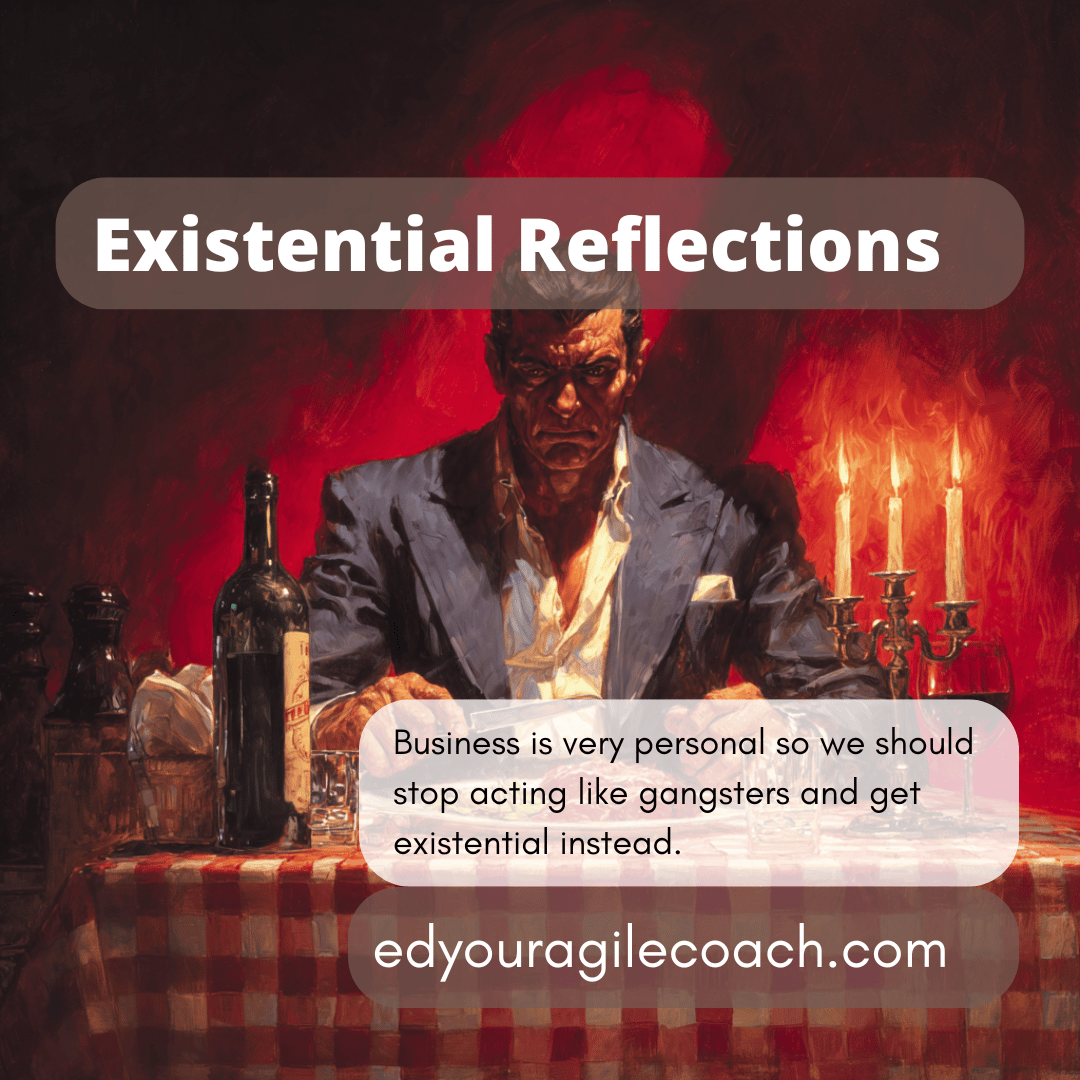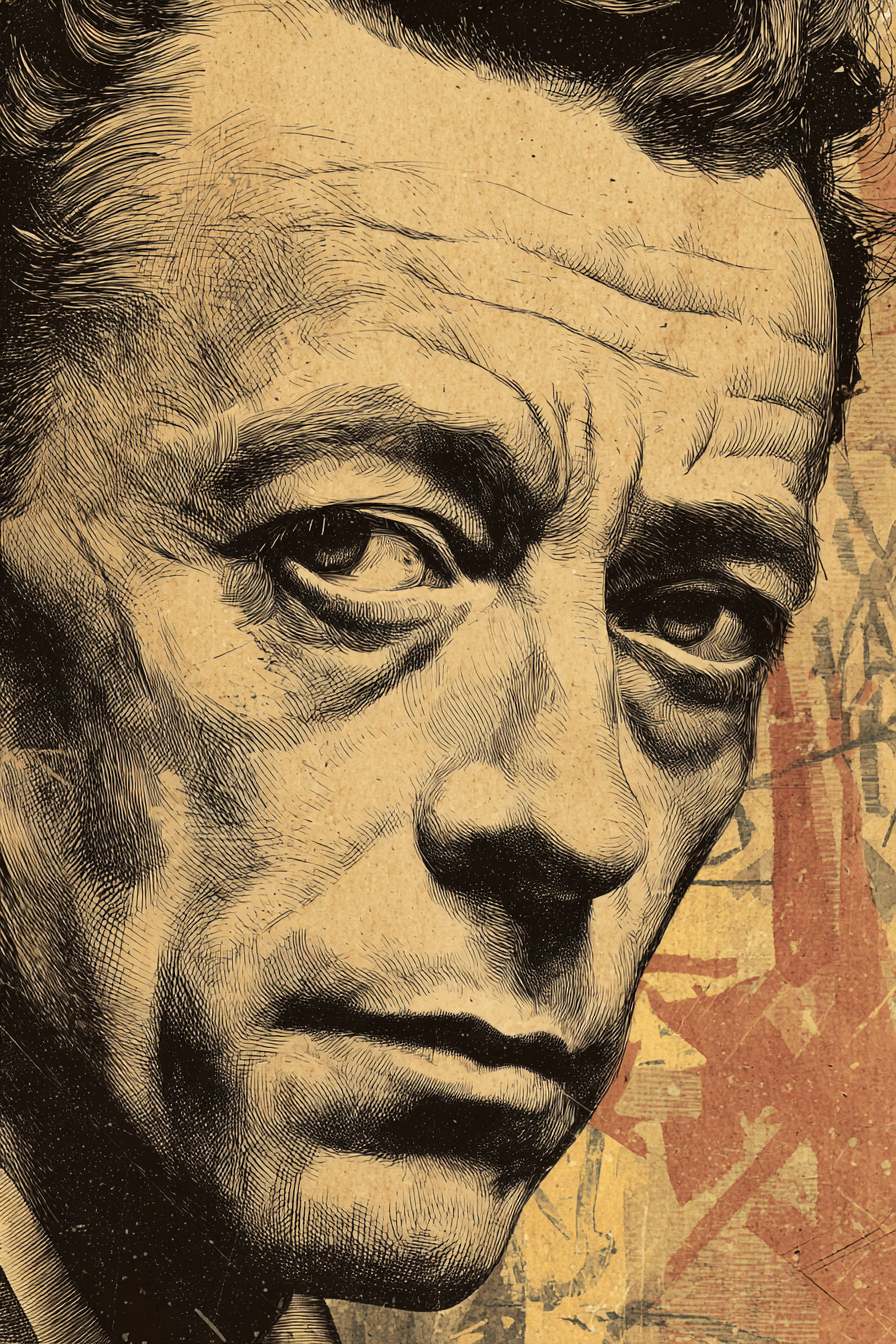How Existentialism Can Save You from Burnout.

One of the most common phrases uttered in cubicles and conference rooms around the world is "don't take it personally, it is strictly business." The phrase originates from Francis Ford Coppola's film "The Godfather," and its portrayal of the Corleone family business has appeared in numerous corporate discussions. It is wise advice in the violent world of gangsters, where a personal vendetta can cost millions of dollars and your life. In the corporate world, I often see this phrase used by individuals involved in questionable decisions or those who undermine a colleague to excuse their behavior. It is easy to get frustrated and angry in situations like this, but over the last year or so, with the help of my coach, I have learned to handle the emotional labor that comes with leadership more effectively.
Over the last decade, I have been candid on this blog about the emotional work required to succeed in a corporate environment. Thick bureaucracy, petty and jealous people, and a focus on profit generation will judge you. The emotional rollercoasters you frequently ride can significantly impact your sense of self-worth and financial stability. It is why I have maintained for years that business is always a personal activity. If we did not take it personally, we would not be human beings.
Kim Scott, formerly of Google and the author of "Radical Candor", points out that one of the critical roles of a manager is to address the emotions and concerns of individual contributors. It is not easy, but it comes with the job. In an increasingly competitive environment, with significant flattening occurring at many organizations, it is easy to see why middle managers are experiencing burnout and frustration. The heavy emotional lifting is too much for many.
To lead effectively in a modern corporate environment, you must navigate the unwritten rules of the workplace. Additionally, you are acting as a coach and therapist for the people you are accountable to. Most people quit organizations due to poor leadership, but with good leaders, they become happier, more productive, and more innovative. It is this realization that has guided me throughout my fifteen-year career, and I hope to make a slight difference in the corporate world upon my retirement.
It means that I must leverage the wisdom I have gathered over the last few decades of my career and apply it to the work I do with the people I serve. I draw heavily on the philosophers of the existential tradition, respected business leaders, and the hard lessons I have learned from my failures. Albert Camus explores the frustrating drudgery of life in his work "The Myth of Sisyphus," arguing that many of us are doomed, like Sisyphus, to push a boulder up a hill only to have it roll back down daily. We are constantly pushing the boulder, but instead of viewing it as a futile exercise, we should find happiness in the fact that this labor gives our lives purpose. The daily grind provides meaning. It is a legacy that we leave for our families and communities. The image of Sisyphus strolling down the hill to push the boulder another day is a hopeful one, and it helps me during the bad days, which are typical in the business world.

Next, we need to examine the philosophies of Sartre and Beauvoir within the context of existentialism. The two of them cut a colorful path through history, with Beauvoir creating the foundations of contemporary feminism and Sartre popularizing ideas we take for granted today. Both of them stressed that emotions are intentional in humans. Often, our feelings overwhelm us. Sartre and Beauvoir argued that we must acknowledge our feelings, but it's how we express them that makes human beings unique.
We can repress emotions, let them spiral out of control, or find ways to channel them in socially constructive directions. It is clear that we live in a world that struggles with meaning, but it is up to each of us to discover our own meaning and live the best lives possible. It is here that they return to emotions, because while we cannot control our feelings, we can control how we express them. Experiences of injustice and powerlessness generate anger. Sartre and Beauvoir would suggest that, when you feel anger, you address the unfairness or the lack of power instead. Doing this channels your emotional energy toward making a difference. I have several issues with Sartre and Beauvoir. Still, the notion of intentionally dealing with your emotions, rather than letting them wash over you like a tidal wave, was insightful.
Finally, I gain inspiration from Viktor Frankl. He survived unimaginable circumstances in the Nazi death camps of World War II, but along the way, he came up with a way of looking at the world that seems more critical today than it did in the aftermath of the Shoah. Frankl points out that people generate meaning in three central ways. They are:
- Creating a work of doing a deed.
- Experiencing something and encountering someone.
- The attitude we take toward unavoidable suffering.
Work provides purpose and gives people a sense of meaning. From the lowly person sorting the mail in the mail room to the CEO in the corner office, each of them is doing work to build something. If done correctly, everyone in the organization enjoys a sense of dignity in taking the necessary steps to succeed, both personally and organizationally. Thus, Frankl is the ultimate guide for business leadership because work provides purpose and sustenance in our lives.
Business is very personal, but existentialists help us navigate the powerful emotions that arise in the business world. Camus suggests that the daily grind provides us with a sense of purpose and that we can find meaning in even the simplest moments. Sartre and Beauviour allow us to accept our emotions but explain that what we do with those emotions is a personal choice. Ultimately, Frankl asserts that the nature of work and creativity are crucial to the human experience. As leaders and individual contributors, we need to absorb those lessons and apply them to our workplace. It makes the emotional labor less heavy.
Until next time.




Comments ()